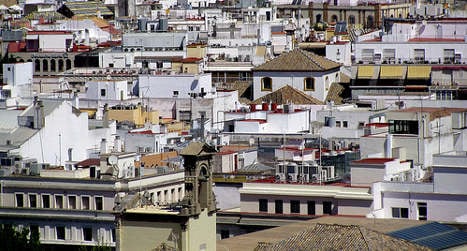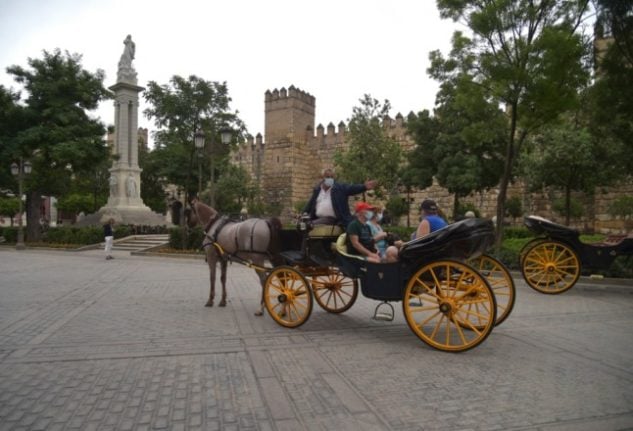The healer touched his patients' genitals, breasts, groins and buttocks but this was not enough to see him face prison charges said Spain's Supreme Court.
The "shaman", known for legal reasons only as C.S.M., had earlier escaped charges at Seville's provincial court, reported ABC newspaper on Thursday.
He wound up in court again, however, after Spain's public prosecutors office appealed the decision.
But the country's Supreme Court rejected the appeal saying that there had been no aggression or intimidation in the healer's acts.
The court also said that the man's patients had not been "deprived of reason or sense".
In its decision on the case, the court said: "It is not clear whether the agent (the healer) had control over the women."
The accused in the case was a Peruvian man who had travelled to Seville in the summer of 2010.
He was invited by a group called the Camino del Águila who wanted the healer to host a number of workshops and practice his therapy.
During his time in the Andalusian capital, the man regularly gave weekend consultations, which he described as a way of helping women to unblock their sexuality.
The man's treatments were carried out with a number of patients at a time, although the women were housed in different rooms, the supreme court established.
Eventually though, a total of five women came forward to denounce the healer's practice.
The first of these was interested in spiritual cleansing and visited the medicine man after attending one of his "chats".
However, during her consultation, she claimed she received "rapid and intense" touches all over her body while she lay face down on a mat.
The woman was then asked to remove her clothes and underwear and was again touched all over body.
According to testimony heard in the supreme court, however, the woman later returned to the healer for similar 'treatment'.
A second woman said she was kissed during her session with the healer who then "at the end asked for her phone number".
A third woman, meanwhile, said she had attended her session with her boyfriend in the hope that she could get over some emotional problems she was facing.
The healer then said the woman should sit astride his lap so that he could "relieve her tension and unblock certain energy points".
At one point, the healer took the woman into a separate room so that she wasn't with her boyfriend.
He then allegedly asked the woman to remove her trousers to "unblock her pelvis".
The court heard he then performed digital penetration and oral sex on her.
At the conclusion of the session the therapist kissed the woman and took her back to the room where her boyfriend was waiting.
All of the women who denounced the healer paid him for their sessions, the supreme court heard.
Other patients remained behind after their sessions to talk to their therapist.



 Please whitelist us to continue reading.
Please whitelist us to continue reading.
Member comments